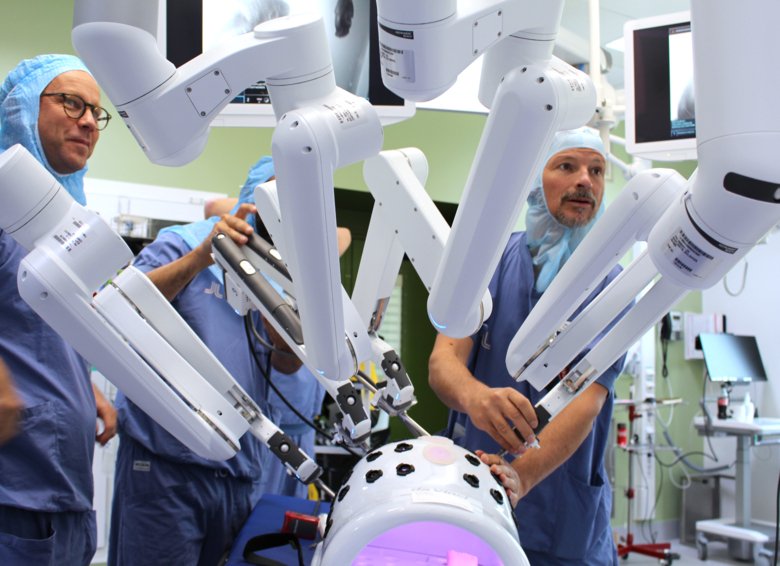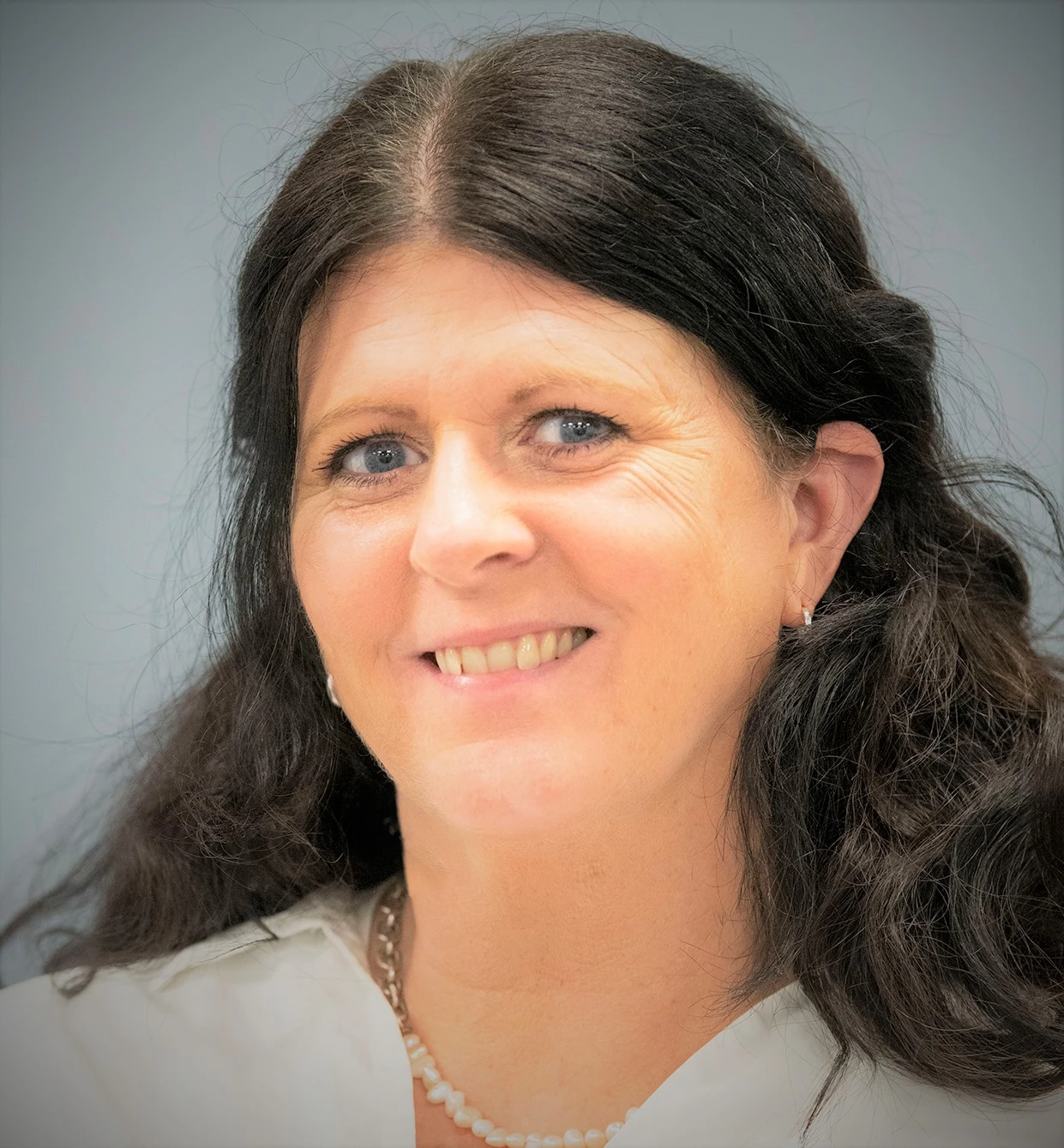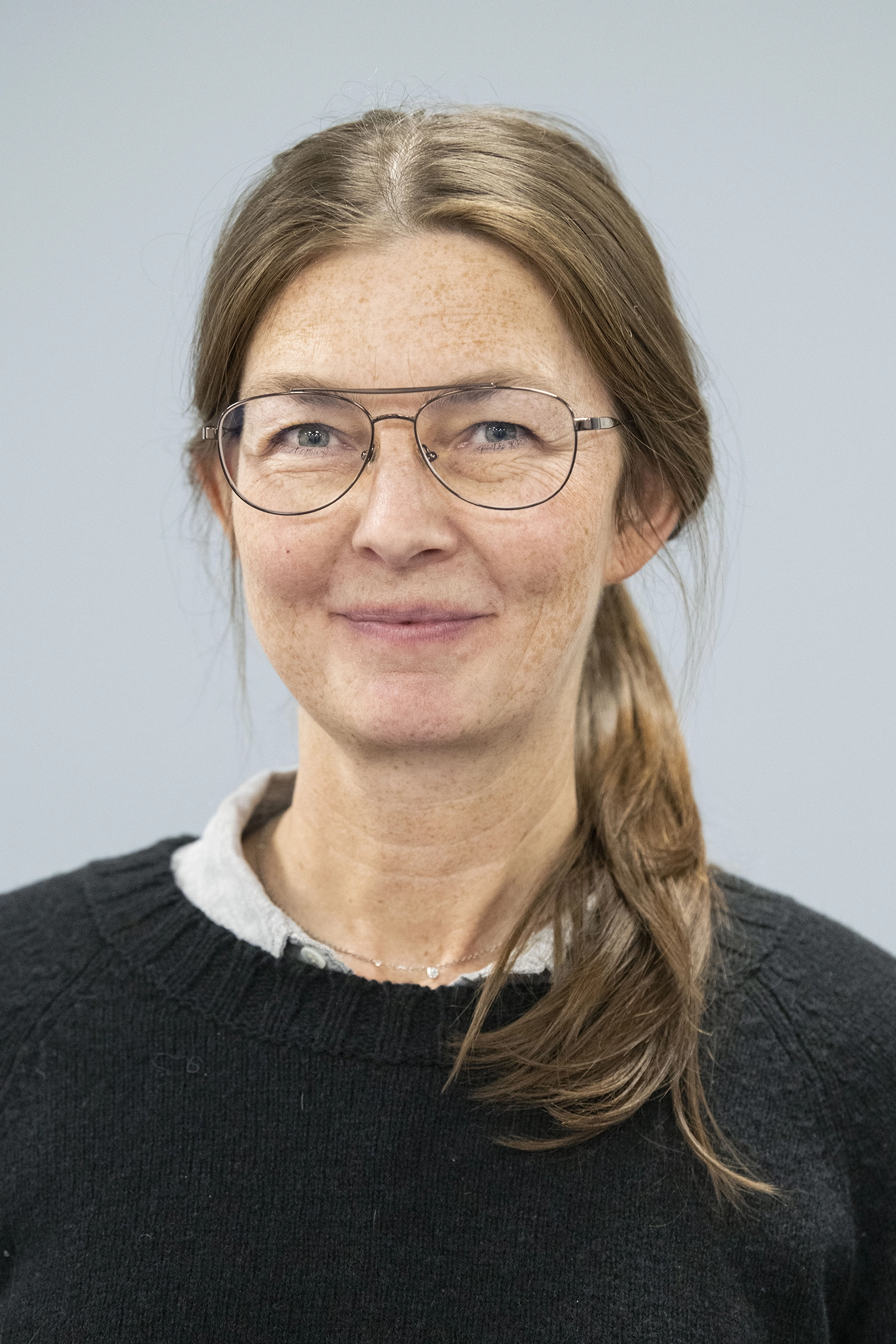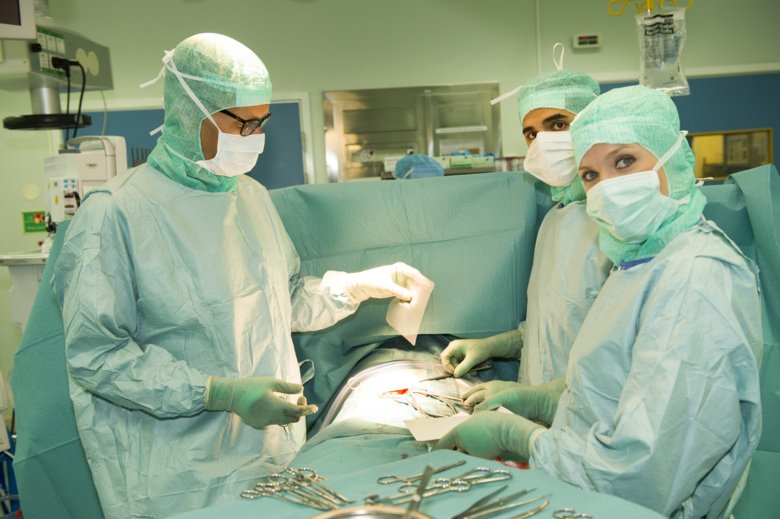Karolinska Comprehensive Cancer Center
Karolinska CCC brings together cutting-edge expertise in highly specialized cancer care and basic, translational, and clinical cancer research. The centre is a joint initiative between Karolinska University Hospital and Karolinska Institutet – and the first accredited Comprehensive Cancer Centre (CCC) in Sweden.

The accreditation as Comprehensive Cancer Centre means that an organisation has been approved according to the highly set quality criteria of the Organisation of European Cancer Institutes (OECI). This non-profit, non-governmental organisation was established in 1979 with the aim of promoting collaborations between European healthcare providers and research institutes in the field of cancer. In all, there are today 20 Comprehensive Cancer Centres in the world.
- The requirements for being called a Comprehensive Cancer Centre include the following:
- Personalised cancer care with a multidisciplinary and innovative approach.
- Excellent conditions for cancer research regarding infrastructure, expertise, and innovative power.
- The cancer research also covers the whole spectrum of basic research, translational and clinical research.
- A well-developed network that includes all aspects of research, education, care, and prevention in the field of cancer.
- A continuous development of the way of work, focusing on improving professional skills, organisation, quality of cancer care and collaborations.
Vision and long-term strategies
Together, Karolinska University Hospital and Karolinska Institutet form a hub in the Stockholm region for the development of care, research, and education in all parts of the cancer field. Our collaboration within the framework of Karolinska CCC aims to create and disseminate knowledge by:
- Developing national and international networks, to give our patients access to the highest international knowledge and ensure that our working methods are always the best possible to meet all cancer related needs of cancer patients.
- Increasing knowledge and by leading the development of clinical application of personalised care as well as precision medical diagnostics and treatment.
- Leading the development of evidence-based practice, national and international treatment programs, and guidelines.
- Developing high-profile research platforms in precision medicine, cell and gene therapy and by offering a high-quality PHASE I resource for drug trials and a professional clinical trial organisation.
- Ensuring that Karolinska CCC is the relevant and natural partner in national and international research and development projects within Life Science and the academic spheres.
- Systematically develop cooperation and partnerships with patients, to increase the involvement of patients in the development of care, research, and education in the field of cancer.
- Systematically develop data quality and availability for easier and more continuous and transparent follow-up of quality of care, treatment outcomes, availability and patient experiences in cancer care and research.
Board of Directors
The Board of Directors is tasked to lead the long-term development of Karolinska CCC in line with the with the OECI's objectives and requirements. The members of this board are recruited from Theme Cancer of the Karolinska University Hospital and from the Karolinska Institutet umbrella organisation for cancer research, called Cancer Research KI. A Scientific Advisory Board has also been elected to support this work.
Members of the Board of Directors:
Patrik Rossi, Director Cancer Theme, Karolinska University Hospital, Chair ofthe Board of Directors Karolinska CCC
Yvonne Wengström, Professor in Nursing Karolinska Institutet. , Head of Nursing Development Cancer Theme
Elias Arnér, Professor in Biochemistry, Director Cancer Research KI Karolinska Institutet
Pernilla Grillner, Acting Director of Highly specialized Pediatrics Theme Children Karolinska University Hospital
Carl Johan Sundberg, Professor in Molecular & Applied Exercise Physiology, Dean North Karolinska Institutet
Päivi Östling, Associated Professor, Scientific Lead for Precision Medicine SciLifeLab
Stephan Mielke, Professor in Hematology, and Cell&Gene Therapy, Karolinska Institutet, Research Director Cancer Theme
Mathias Axelsson, Director Medical Diagnostics Karolinska, Karolinska University Hospital
Anita Wanngren, Patient representative
Janne Lehtiö, Professor in Proteomics Karolinska Institutet ,Research Director SciLifeLab
Eva Jolly, RN, ONS, MSc, Chief Coordiinating Officer Karolinska CCC
Robert Brännström, Ass. Professor Acting Head of Cancer Theme
Jonas Bergh, Professor in Oncology Karolinska Institutet, Prefekt Cancer Theme
Ann-Britt Johansson, RN, MSc, Coordinator Karolinska CCC
Contact

Eva Jolly
Operations Manager Karolinska CCC
Ann-Britt Johansson
Coordinator Karolinska CCCOECI in short
The Organisation of European Cancer Institutes (OECI) was founded in 1979 with the mission to:
• Reduce the incidence and death of cancer, and to provide support to cancer patients.
• Link together the expertise in healthcare and research of all European cancer institutes.
• Strengthen these cancer institutes and promote communication and collaboration between them.
The Comprehensive Cancer Centre accreditation programme started in 2008 with the following aim:
• All cancer patients in Europe should have equal access to high-quality cancer care.
• To assist European cancer institutes in implementing quality systems for cancer care through standards / indicators and peer-review / audit.
Annual report
KCCC Vision, Mission and Strategic areas 2024-2030
 Photo: Stefan Zimmerman
Photo: Stefan ZimmermanMore about KI's collaboration with the healthcare sector
Region Stockholm, which is responsible for all publicly-financed healthcare in the Stockholm region, is Karolinska Institutet's most important cooperation partner. Together we work to create optimal conditions for clinical research, education and healthcare in order to improve people's health.
